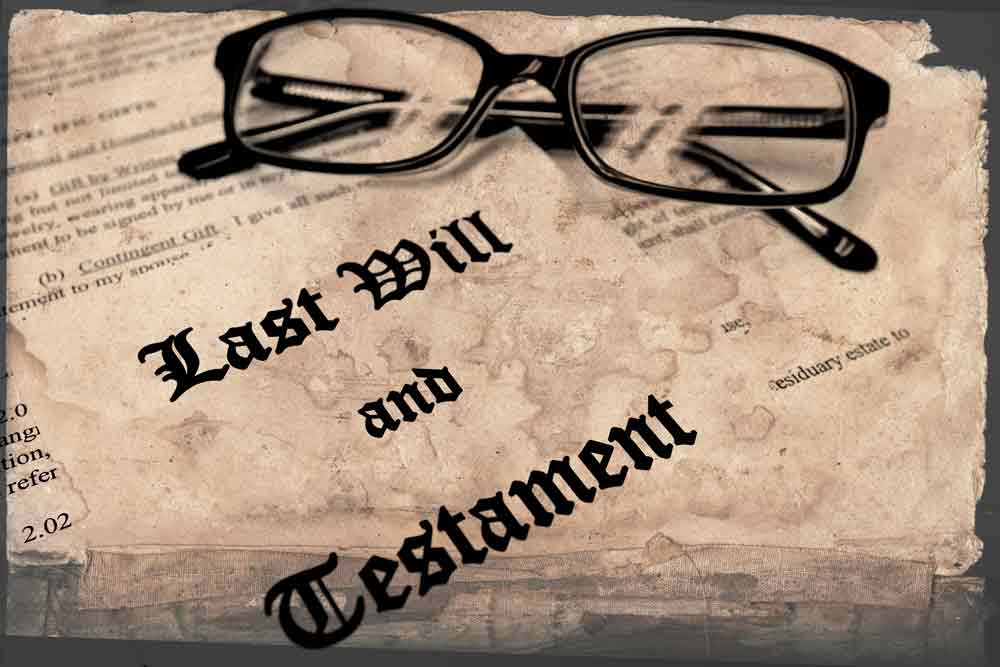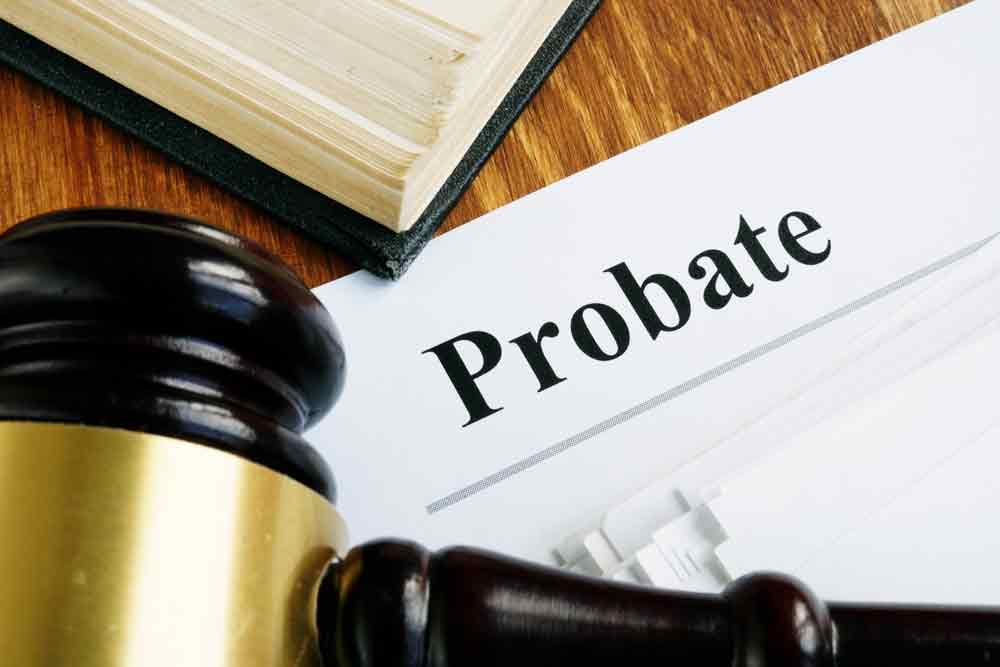
PERSONAL REPRESENTATIVE FEES IN A FLORIDA PROBATE – ESTABLISHING ENTITLEMENT AND OBJECTIONS
Sometimes being a Personal Representative in a Florida probate proceeding is quite easy. These are the cases where the administration
Lines are Available 24/7
Se Habla Español
Lines are Available 24/7
Se Habla Español

Sometimes being a Personal Representative in a Florida probate proceeding is quite easy. These are the cases where the administration

Unfortunately, many Floridians continue to fall victim to exploitation and abuse. The Florida legislature has provided some tools to aid

We often see people come in after a loved one has died with a will from ten, fifteen, or even

A common problem arises in Probate cases where property is transferred to one or more family members and there is

Florida Probates can take a variety of different forms depending on the nature of the representation. Small Estate proceedings, called

Sometimes life events occur that require a change in Estate planning. In Florida will contests and Probate litigation can often

A probate proceeding in Florida is a Court supervised distribution system designed to protect beneficiaries and creditors and to ensure

With the popularity of “avoiding probate” seminars, books and do-it-yourself guides that flooded the State of Florida over the past

WAIVER OF SPOUSAL RIGHTS UNDER FLORIDA PROBATE LAW Florida probate law contains numerous protections for a surviving spouse. These interests

FLORIDA LAW: WHO TAKES CARE OF MY CHILDREN IF I DIE? Not surprisingly a common concern among our Clients is

A common question presented to our office during Estate planning consultations is how to avoid probate in Florida. Complicated and

Often because of an inheritance or a change in circumstances, two unmarried people end up jointly owning real estate. This















Mr. Zoecklein’s primary focus centers on Probate and Plaintiff’s Civil Litigation. His esteemed team is actively handling cases across the State of Florida in the areas of probate administration, estate litigation, insurance claims, and business law. Hailing from Blacksburg, Virginia, he graduated cum laude from Virginia Tech with a degree in business management, successfully running multiple franchises in Virginia and North Carolina during his time there. Pursuing higher education, Mr. Zoecklein earned his juris doctorate degree cum laude, along with a Masters in Business Administration, from Stetson University College of Law, where he notably represented the university in numerous national and international legal academic competitions. A highlight of his law school journey was winning a National Moot Court competition for Stetson, displaying his exceptional legal acumen. During his time at Stetson, Brice also contributed to the Center for Advocacy of Elder Law and interned at the U.S. Attorney’s Office for the Middle District of Florida. Following graduation, he embarked on a career with a prominent insurance defense firm, but his passion for Plaintiff advocacy and consumer justice led him to dedicate his legal pursuits exclusively to the representation of consumer rights. Apart from his professional endeavors, Mr. Zoecklein treasures quality time with his wife and three children. Through his unwavering pursuit of justice, both inside and outside the courtroom, Brice Zoecklein exemplifies the essence of a compassionate advocate and a reputable professional, dedicated to upholding the values of integrity, empathy, and fairness in all aspects of his life.
Stetson University College of Law – cum laude
Virginia Polytechnic Institute – cum laude
Mr. Zoecklein and Zoecklein Law are currently litigating cases in the following practice areas:
Email: Brice@zoeckleinlawpa.com
Tampa Office: (813) 993-4967
Lakeland Office: (863) 808-0530
Sarasota: (941) 313-3330
Mrs. Zoecklein is a highly accomplished and driven professional with a successful track record in both accounting and customer service. As a devoted spouse and parent to three wonderful children, She values the importance of work-life balance and strives to lead by example in maintaining a fulfilling family life alongside her career.
With an innate sense of self-drive and ambition, Mrs. Zoecklein has consistently demonstrated exceptional leadership and organizational skills, making her an invaluable asset to every team she has been a part of. Drawing from her experience in accounting, she has managed financial operations with precision and an eye for detail, ensuring smooth financial transactions and accurate record-keeping.
In the realm of customer service, Mrs. Zoecklein has honed her communication and interpersonal skills, establishing strong rapport with clients and colleagues alike. She takes great pride in delivering exceptional service, consistently exceeding expectations, and ensuring client satisfaction.
Outside of her professional pursuits, Mrs. Zoecklein finds immense joy in the company of her loving spouse and three children. She believes that family forms the cornerstone of a fulfilling life and embraces opportunities to create lasting memories with them. Whether it’s embarking on adventurous outings, engaging in creative endeavors, or simply relishing quality time at home.
With a perfect blend of professional dedication and family-centered values Mrs. Zoecklein embodies a well-rounded and driven individual, whose commitment to excellence extends to both her career and the cherished relationships that enrich her life.
A Florida Bar licensed attorney since 2011 with a passion for justice, a track record of successful courtroom and jury trial experience, and a diverse background that extends beyond the legal world. As a past assistant state attorney and co-owner of a successful online business, I bring a unique blend of legal expertise and entrepreneurial spirit to everything I do.
My dedication to the well-being of the community began with my service in the U.S. Army Reserve, evolved into keeping drunk drivers off the street, and is now focused on helping people find closure during difficult times, putting loved ones to rest, and mitigating the injustices of the legal system.
I grew up in Tampa, Florida, and after 2 years at the American University in Washington, D.C., I returned to the state and graduated with honors from the University of Florida with a degree in history. I received my Juris Doctor from the University of Maine. After deciding New England winters were too gloomy, I returned to the state for a second time. When I am not working, I cherish spending time with my wife and our pets.
Mr. Rubin currently focuses on probate administration, estate litigation, and general civil litigation. Mr. Rubin grew up in Miami, Florida, and graduated from the University of Miami where he obtained a Bachelor’s of Science in Communications.
Mr. Rubin obtained his juris doctorate degree from Florida International University College of Law in Miami, Florida. While at Florida International University, Mr. Rubin was a member of the Negotiation and Mediation Team, and competed in several competitions, including the Tulane Law School Professional Football Negotiation Competition. While at Florida International University, Mr. Rubin interned at the Miami-Dade State Attorney’s Office and the Broward Public Defender’s Office.
After graduating, Mr. Rubin worked at the Fort Myers Public Defender’s Office as an Assistant Public Defender, and then worked for Florida Rural Legal Services, where he focused on family and immigration law. Mr. Rubin joined Zoecklein Law, P.A. in July of 2023. While not working, Mr. Rubin enjoys spending time with his girlfriend and their three cats, four spiders, one snake, and one scorpion.